ETHER Keynotes and Discussions
ETHER Keynotes and Discussions
Watch our Keynote and Conversation videos from ETHER Seminars below. For Seminar 1 "The Art of Seeing and Hearing the Other", Rosine Kelz presented the keynote and Ana Deumert led the conversation. For Seminar 2 "The Ethical Drama of Encountering the Other", Charlotta Palmstierna Einarsson presented the keynote and Adrian Blackledge, Mohasin Ahmed and Nigel Rapport led the conversation.
Keynote by Rosine Kelz "The (Im-)possibility of Acknowledging Difference? Approaches to Encountering the Other in Modern Western Philosophy"
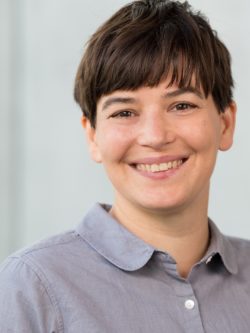
The (im-)possibility of acknowledging difference? Approaches to encountering the Other in modern western philosophy
For modern western philosophy, universality is an issue. Enlightenment values like rationality, objectivity and human rights inherently demand universal validity as part of their emancipatory promise. The claim of universality, however, has also been challenged from within the tradition of European thought, which has highlighted the finitude and situatedness of human knowledge. Moreover, since at least the early 20th century political movements have pointed out problematic aspects of a European thought tradition that has been closely affiliated with colonial and imperialist projects. In my contribution, I will examine critiques of universality and notions of the Other, recognition, and acknowledgment in contemporary western thought. I ask whether contemporary ideas of otherness and difference within western philosophy are successful in enabling encounters between people of different cultural backgrounds or genders and help to enable conversations between people who ascribe to diverging political ideas, moral convictions, or worldviews. Such encounters are crucial for addressing global challenges such as climate change in ways that are attentive to issues of social and environmental justice.
Bio: Rosine Kelz is a research associate in the project “Politicizing the Future” at the Institute for Advanced Sustainability Studies in Potsdam, Germany. Previously she was an Andrew W. Mellow Fellow in the Bio-Humanities at the Illinois Program for Research in the Humanities at the University of Illinois. Her current research focuses on ethical and ontological questions associated with the use of new biotechnologies. She also works on the role of temporality in political and moral thought. Rosine holds a D.Phil in Political Theory from the University of Oxford.
The Art of Seeing and Hearing the Other: A Conversation led by Ana Deumert
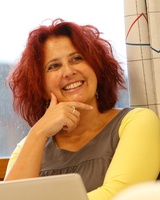
Ana Deumert is Professor of Linguistics at the University of Cape Town. Her research program is located within the broad field of sociolinguistics and has a strong transdisciplinary focus. She has worked on the history of Afrikaans (The Dynamics of Cape Dutch, 2004), co-authored Introducing Sociolinguistics (2009, with Rajend Mesthrie, Joan Swann and William Leap), the Dictionary of Sociolinguistics (2004, with Joan Swann, Rajend Mesthrie and Theresa Lillis), and published on mobile communication from a global perspective (Sociolinguistics and Mobile Communication, 2014).
In addition, she is the editor of four collections: Germanic Standardizations – Past and Present (with Wim Vandenbussche, 2004), Structure and Variation in Language Contact (with Stephanie Durrleman-Tame, 2006), The Sociolinguistics of Everyday Creativity (with Joan Swann, 2018, special issue of Language Sciences), and Colonial and Decolonial Linguistics - Knowledges and Epistemes (2020, with Anne Storch and Nick Shepherd).
Her current work explores the use of language in global political movements as well as the contributions decolonial thought can make to sociolinguistic theory. She was co-editor of IMPACT – Studies in Language and Society (2002 to 2018) and is current co-editor of Edinburgh Sociolinguistics and Cambridge Approaches to Language Contact.
Ana is a recipient of the Neville Alexander Award for the Promotion of Multilingualism (2014) and the Humboldt Research Award (2016). In addition, she is a regular columnist for diggit magazine.
Keynote by Charlotta Palmstierna Einarsson "A Community of Speakers - Embodied Interaction, Attunement and the Ethics of Interpretation"
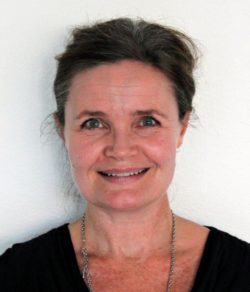
A Community of Speakers –– Embodied Interaction, Attunement and the Ethics of Interpretation
By what means do we arrive to make claims and to what extent are the claims we make solidified by our sense of commitment to a community? Among the fascinating aspects of language is its capacity to cultivate communities of speakers who share a notion of reality on the basis of interaction. The failure to reach an agreement that could serve as the basis for a sense of belonging to such a community may even be experienced as an ‘intellectual tragedy’ (see Cavell, 1979). But who are ‘we’ in such contexts, and who is ‘the Other’? On whose authority do we make claims, and on whose authority do we deny the claims of others? This presentation considers the issue of making claims in relation to the ethics of interpretation. In so doing, it asks what is at stake in making claims. For instance, if we want to create the necessary conditions of possibility for an ethical encounter with the other, do we then have to call our own claims into question? And what counts as claims? Are merely verbal expressions claims or do we make claims also in embodied interaction?
Bio: Charlotta Palmstierna Einarsson is a Senior Lecturer in English Literature at MID Sweden University. As a former dancer and dancing teacher both her background and her research interests are highly cross- and interdisciplinary and include, for instance, literature, drama and dance, aesthetics, affect theory and phenomenology. Although a literary scholar, her previous experience as a dancer has continued to guide her research and, put ambitiously, she is dedicated to highlight what is typically forgotten in literary scholarly discourse, namely the body. Her current project is a book-length study on the aesthetics of gesture in Beckett’s drama as a point of entry to address interconnections between poetics, ethics and value in his work.
The Ethical Drama of Encountering the Other: A Conversation led by Adrian Blackledge, Mohasin Ahmed and Nigel Rapport
Adrian Blackledge, Mohasin Ahmed and Nigel Rapport conclude ETHER Seminar 2 "The Ethical Drama of Encountering the Other" with their reflections to the discussions over the two days.
Adrian Blackledge is Professor of Sociolinguistics at University of Stirling. He conducts ethnographic research in the field of language in society, with a particular focus of multilingualism and translanguaging. He is currently developing creative approaches to the representation of research outcomes. He is a Fellow of the Academy of Social Sciences. He was Distinguished Visiting Fellow, Advanced Research Collaborative, City University New York, 2019-2020. He was Poet Laureate for the city of Birmingham, 2014-2016.
Mohasin is an MPH student at University of Glasgow, the Development Worker for two Collective Advocacy groups for people with lived experience of mental health issues, from LGBTQI+ and ethnic minority backgrounds. She is also the co-creator of a social space/club night: Mojxmma. She is proudly queer and of mixed ethnicity, with Sudanese and Scottish roots. Her work and research is centred around raising the voices of marginalised groups and reducing health inequalities. She created Mojxmma in 2018 in response to the lack of safe social spaces for queer POC in her hometown Edinburgh. She hosted one club night in February 2019 before the COVID-19 pandemic and since then she has held a virtual healing space and hosted shows on local radios, playing music and discussing topics related to LGBTQIA+ and BPOC culture.
Nigel Rapport is Professor of Anthropological and Philosophical Studies in the Department of Social Anthropology at the University of St Andrews. His recent work has been to develop a ‘cosmopolitan’ anthropology. This is understood as an ontological project, seeking to define the human, its capacities and liabilities as universalities beyond the particular differences of sociocultural and historical condition; it is also a methodological project, finding ways best to approach and know the human; and it is a political project, hoping to nurture individual human expression over and above sociocultural contingencies and circumstance. His broader research interests include: social theory; phenomenology, identity, individuality and consciousness; literary anthropology and narrative; symbolic interactionism, community studies and conversation analysis; representation and aesthetics; globalization, cosmopolitanism, liberalism, and anthropology as a moral pursuit.
Keynote by Gert Biesta: "(Re)turning the Question: Is Education the First Reality of the Self?"
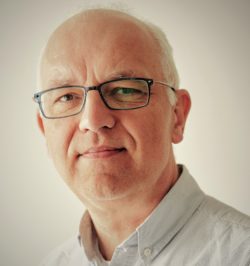
(Re)turning the question: Is education the first reality of the self?
The encounter with the other is often described in precisely this way, that is, about how I encounter an other. Education’s interest here tends to lie in the ambition to prepare students for such encounters. One approach focuses on how we can help students to better understand others, on the assumption that better understanding will translate into better encounters, and some believe that the humanities have a special contribution to make here. Others, also at policy level, have a strong belief in the power of so-called intercultural competencies, and see it as a key-task for education to equip students which such competencies. Along both lines, education’s interest can be characterised as a strategy of empowerment: giving students the power to encounter the other. One thing that is remarkably absent in this way of thinking is the simple fact that before we encounter others, others are already encountering us. Rather, therefore, than starting from a sovereign subject who needs to gain the power to encounter the other, there may be good reasons for turning the educational question in another direction. Not: “How can I encounter the other?” But: “What is this or that ‘other’ asking of me?” The latter question, which, in my view, is the more productive one, calls for a strategy of disarmament rather than empowerment, not least because it is through this question that the whole issue of my existence as self comes into play.
Bio: Gert Biesta is Professor of Public Education in the Centre for Public Education and Pedagogy at Maynooth University, Ireland, and Professor of Educational Theory and Pedagogy at the Moray House School of Education and Sport, University of Edinburgh, UK. His work focuses on the theory of education and the theory and philosophy of educational and social research, with a particular interest in questions concerning curriculum, teaching, teacher education, citizenship and democracy. He has been a long-standing critic of the ongoing ‘learnification’ of education, that is, the reduction of everything educational to questions of learners and their learning and continues to seek updated ways to put a broad and robust account of teaching at the centre of educational thought and practice.
Creating a Culture of Encountering the Other: A Conversation led by Erin Moriarty Harrelson
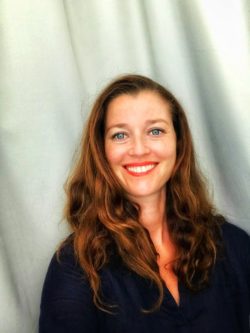
Erin Moriarty Harrelson, Assistant Professor and the Program Director for Deaf Studies at Gallaudet University, concludes ETHER Seminar 3 "Creating a Culture of Encountering the Other". Dr. Moriarty Harrelson’s current work is situated at the intersection of anthropology, visual methods, and applied linguistics. She is focused on the study of multilingual multimodal languaging practices, language ideologies, deaf spaces and ethnographic research methods. She has conducted ethnographic research in Southeast Asia since 2009 and her current research project focuses on deaf tourist mobilities and translanguaging in Indonesia.
